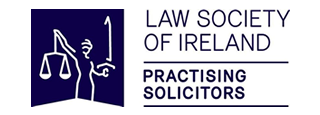The “Patient” is the name given by the Order to a person who is suffering from mental disorder and whose financial affairs are subject to the Court’s control.
A “Controller” is the name given to those appointed by Court to manage a Patient’s financial affairs.
It is the Office of Care and Protection (Patients Section) which deals with the appointment of Controllers and the management of Patients’ financial affairs.
What can the Master of the Office of Care and Protection do?
The Master can authorise someone to do anything which appears necessary or expedient with respect to the property and affairs of the Patient. For example, he/she can authorise:
- The transfer and investment of money
- The release of monies to meet bills
- The sale or purchase of property; or alteration of title
- The making of gifts
- The making of a Will and
- The carrying on of a business
Who can become a controller?
A close relative usually acts as a controller, but it could be a friend or a solicitor. If nobody can be found, the Office of Care and Protection can appoint the official solicitor to act as a controller.
A controller’s role can be time-consuming and the decision to act should not be taken lightly.
What can a controller do?
The controller will manage your income to pay your daily expenses. They will manage your property, assets and tax returns.
The controller must liaise with the Office of Care and Protection about any investments and about the sale of property, which must be approved in advance.
The controller should consult the patient as far as possible on how they would like their money to be spent.
A controller has to submit annual accounts to the Office of Care and Protection and take out a security bond to safeguard assets.
How do you become a controller?
Detailed forms should be completed by the applicant and sent to the Office of Care and Protection together with the application fee.
If the court is satisfied they will appoint a controller (or make a short procedure order, see below). Both these arrangements give the person selected the legal authority to manage financial affairs behalf of the patient, in accordance with the court’s instructions.
Short procedure order
In some cases the Office of Care and Protection may decide to make a ‘short procedure order’, rather than appointing a controller. This is a simpler and more limited arrangement. It usually occurs where the value of someone’s assets or income is relatively low. It can also occur when there is no property to be sold and you do not have a level of income that the court considers in need of being managed by a controller. A short procedure order may authorise someone to:
- use your pensions and income on your behalf
- use your social security benefits and money held in a bank or building society
- pay care home fees and any other debts and expenses
- make sure any documents and valuables are safely looked after.
If you need to consider making an application for Controllership Contact us for a free no obligation consultation on 02830267134 or law@lukecurran.co.uk






